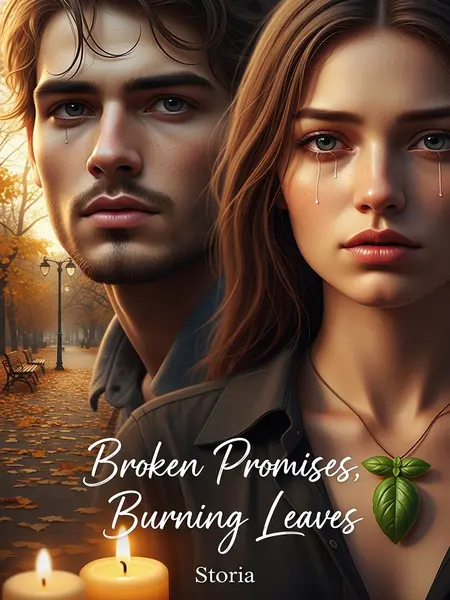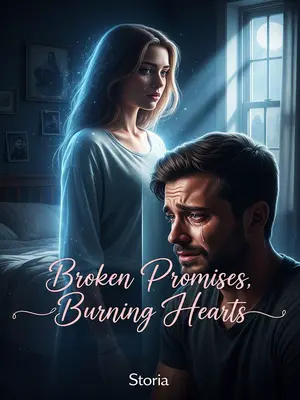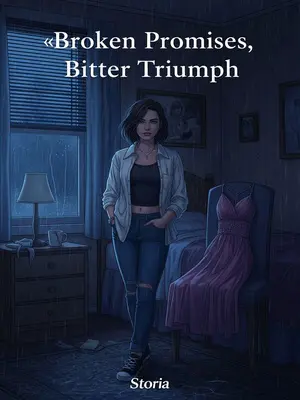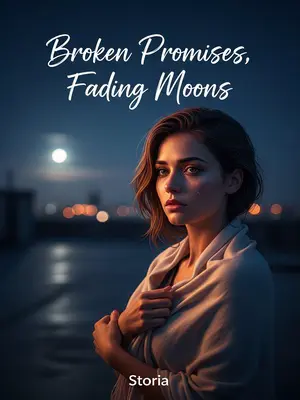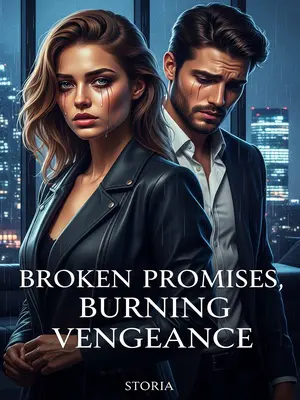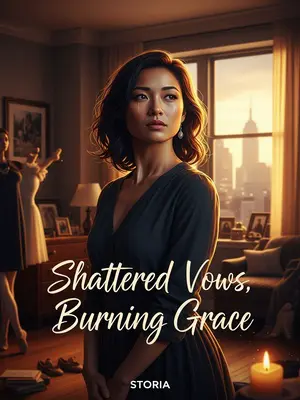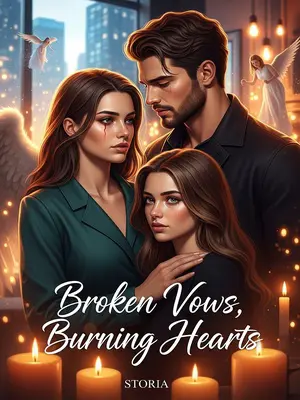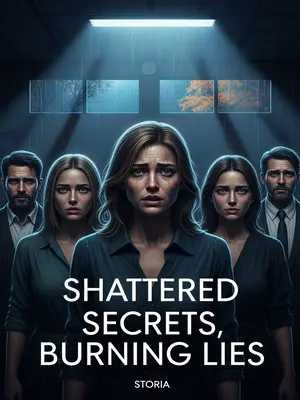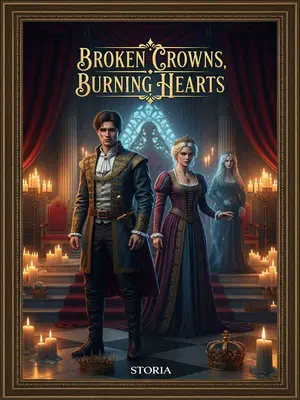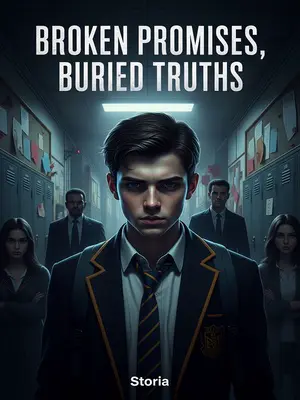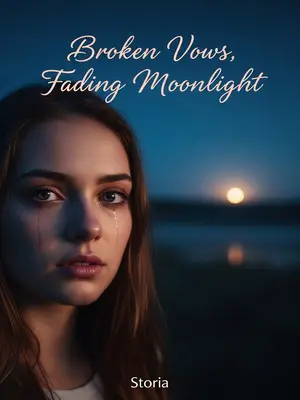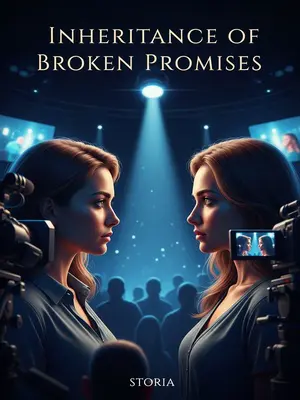Chapter 1: The Girl by the Dumpster
A girl almost took her own life because of me. That's the truth I can't shake. The last thing she ever said to me was:
"Evan, remember—even if I die, I'll never fall in love with you."
You don't really get what that kind of pain feels like. The person you care about is right there, close enough to touch, your chest so full of words you could burst—but nothing comes out. Not a single word.
Sometimes, that silence is louder than any scream. It presses down on you, heavy as wet concrete. Makes it tough to breathe. I can still hear the exact pitch of her voice, remember how she couldn't meet my eyes. That moment stuck in my mind, sharp as a splinter you just can't dig out, no matter how hard you try.
The first time I met Lauren Pierce was by a dumpster.
It was the summer of 2018—before recycling bins were everywhere, before neighborhood Facebook groups argued about whether pizza boxes were compostable. No retirees by the trash, asking, "Are you recycling that?"
Back then, things felt a little messier, a little more real. Nobody watched your trash habits, and nobody snapped passive-aggressive pics of your cardboard boxes for the group chat. It was just me, the sticky heat, and the constant buzz of cicadas.
Then there was this girl, asking, "Can you give me a dollar? I want to buy something to eat."
She had on a faded striped tee. Her long hair was in a messy ponytail, bangs a little greasy. She looked up at me with this open, innocent face.
There was something about her—raw, unguarded. Her eyes had a tired glimmer, like someone who'd been up all night but still hoped the world might show a little kindness. I noticed her scuffed sneakers, how she shifted from foot to foot, hands fidgeting in her pockets.
I'd seen people like her before.
They drifted around campus, asking for a few bucks for food, sometimes more for a bus ticket, chatting all day, probably making a few hundred by sunset.
Still, I always kept a cynical voice in my head: Don't get played. But she didn't have that polished pitch or a hard, defensive look. She just looked tired. Still, old habits die hard. So I kept my guard up.
Normally, I would've just kept walking.
I mean, that's what everyone else did—head down, earbuds in, act like you didn't hear. Maybe toss out a "Sorry, can't help" without slowing down. That's just how it goes on campus. But for some reason, I hesitated that day.
But that day, I couldn't just walk away.
Maybe it was how she asked—soft, but steady. Maybe it was the heat, the way time felt stuck. Whatever it was, I stopped, still holding my trash, and looked at her for a long moment.
At the time, my writing career had just started to flicker with hope. An indie publisher had asked for a novel draft. To focus, I'd rented a tiny studio off campus. I skipped all my classes except the ones I absolutely needed for my English major.
The place was barely bigger than a dorm room, with a view of the alley and a mattress that sank in the middle. Still, it was my own little world—a writer's cave, cluttered with coffee mugs and stacks of half-read paperbacks. My desk was a graveyard of scribbled notes and empty Red Bull cans.
A month in, I cracked. Writer's block. Nothing would come—just static in my head.
I'd stare at the blinking cursor for hours, begging a sentence to appear. Instead, I'd scroll Twitter or binge-watch The Office, telling myself it was "research." Every day felt the same: hope, frustration, surrender.
Most days, I'd stand outside the 7-Eleven downstairs, chatting with the owner, Mr. Harris, pretending it was for inspiration.
Mr. Harris was this wiry, middle-aged guy with a Red Sox cap and a permanent five o'clock shadow. He could turn small talk into an art form. Sometimes, he'd slip me a free coffee and ask about my "Great American Novel," like he honestly thought I had one in me.
That afternoon, Mr. Harris gave me some advice: "Kid, you know why you can't write right now? You need some excitement. Your life's too damn boring. Look at all those famous directors—none of them got there without a few wild stories, you know? If you don't have stories, you can't write good stories."
He leaned in, like he was about to share a secret. "You gotta live a little, Evan. Go get your heart broken, get in some trouble, whatever it takes. Otherwise, you're just making stuff up."
So, when I went to take out the trash and met Lauren, only one thing was on my mind:
My boring life could use a little chaos.
Honestly, I was desperate for anything to shake things up. I could almost hear Mr. Harris in my head, egging me on. "Here's your story, kid. Don't blow it."
So I asked her, "What do you want to eat? I'll buy it for you."
She fiddled with her fingers, hesitated, then said, "Could you get me two dinner rolls?"
Her voice was so quiet I almost missed it. She didn't look at me, just stared at her shoes. The request was so modest, it threw me off. No sob story, no shopping list—just two rolls. Just two rolls. That was it.
I thought, wow, she's really committed to the act. Are hustlers this professional now? Playing the long game?
Part of me wanted to believe her, but another part thought, This is next-level. She's not even trying to upsell.
I shrugged. "Alright, let's go get some."
My tone was casual, maybe even a little amused. If this was a hustle, at least it was entertaining.
"Hey, can we get four rolls and a bottle of water?"
She looked up at me, almost sheepish. I nodded. "Sure, four rolls and water. No problem."
I took her to the bakery across the street. Since we were both acting, I figured I'd play along.
The bakery was one of those old-school joints, with handwritten signs and the smell of yeast hanging in the air. The woman behind the counter shot us a look, but didn't say anything. I bought the rolls and a bottle of water, handed them to Lauren, and watched her clutch them like they were treasure.
Watching her eat all four rolls and drink the water, I asked, trying to sound concerned, "Still hungry?"
She shook her head. "No, I'm full."
